Optimizing Brain Patterns for Neurofeedback Success

Quantitative Electroencephalography (QEEG) and neurofeedback have emerged as powerful tools for assessing and optimizing brain function. By mapping electrical patterns across the brain and training individuals to modify these patterns, these approaches offer promising paths for addressing various neurological and psychological challenges. Increasingly, practitioners and researchers are exploring how specific herbs and botanical compounds might enhance QEEG outcomes by supporting the brain’s natural capacity for neuroplasticity and optimal functioning. This article examines key herbs that may potentiate QEEG efficacy and neurofeedback success.
Understanding QEEG and Its Role in Neurofeedback
QEEG brain mapping provides a detailed functional assessment of brainwave activity across different regions. By placing sensors on the scalp, practitioners can measure electrical patterns and compare them to normative databases, identifying areas of dysregulation associated with specific symptoms or conditions. This detailed map serves as the foundation for personalized neurofeedback training protocols, targeting specific brainwave patterns for modification.
During neurofeedback sessions, individuals receive real-time feedback about their brain activity, typically through visual or auditory cues. When their brain produces desired activity patterns, they receive positive reinforcement (like clearer images or more pleasant sounds). Through repeated training, the brain learns to self-regulate more effectively, potentially improving symptoms related to attention, anxiety, sleep, cognitive function, and more.
The Neurochemical Basis for Herbal Enhancement of QEEG Outcomes
Several neurobiological mechanisms may explain how specific herbs can enhance QEEG outcomes and neurofeedback efficacy:
- Brain-Derived Neurotrophic Factor (BDNF) Enhancement: BDNF plays a crucial role in neuroplasticity—the brain’s ability to form new neural connections. Herbs that increase BDNF levels may support the brain’s capacity to form and strengthen new neural pathways during neurofeedback training.
- Neurotransmitter Modulation: Herbs that influence neurotransmitter systems like dopamine, serotonin, GABA, and acetylcholine may help create a more receptive neurochemical environment for brainwave training.
- Cerebral Blood Flow Enhancement: Improved circulation to the brain ensures optimal delivery of oxygen and nutrients, supporting energy production and neural activity during neurofeedback sessions.
- Anti-inflammatory and Antioxidant Effects: Reduced neuroinflammation and oxidative stress can improve neural signaling and support healthier brain function.
- Stress Reduction: Adaptogenic herbs that help regulate the stress response may create a more balanced physiological state conducive to neurofeedback learning.
Key Herbs for Enhancing QEEG and Neurofeedback Outcomes
Ginkgo Biloba
Ginkgo biloba stands as one of the most extensively researched herbs for cognitive enhancement and brain health. Its potential to enhance QEEG outcomes stems from several mechanisms:
- Improved Cerebral Blood Flow: Ginkgo increases blood circulation to the brain, potentially enhancing the delivery of oxygen and nutrients to neural tissues during neurofeedback sessions.
- Neuroprotective Effects: The flavonoids and terpenoids in ginkgo help protect neurons from oxidative damage, potentially supporting healthier overall brain function.
- BDNF Support: Research suggests ginkgo extracts may help restore levels of BDNF protein in the brain, supporting the neuroplasticity necessary for successful neurofeedback training.
For individuals undergoing neurofeedback for cognitive enhancement or attention improvement, ginkgo may serve as a valuable complementary support, potentially amplifying the benefits of brainwave training.
Bacopa Monnieri (Brahmi)
This traditional Ayurvedic herb has gained scientific recognition for its cognitive-enhancing properties:
- Enhanced Memory and Learning: Bacopa contains bacosides that support dendritic growth, potentially improving information processing and memory formation.
- Neurotransmitter Modulation: Bacopa may influence acetylcholine, GABA, and serotonin systems, creating a neurochemical environment that supports attention and learning during neurofeedback.
- Reduced Anxiety: By modulating stress responses, bacopa may help create a calmer mental state conducive to productive neurofeedback sessions.
Bacopa’s effects typically build gradually over several weeks, making it well-suited as a supportive herb throughout a course of neurofeedback therapy rather than for acute enhancement.
Lion’s Mane Mushroom (Hericium erinaceus)
Though technically a fungus rather than an herb, Lion’s Mane offers significant potential for enhancing neuroplasticity:
- Nerve Growth Factor (NGF) Stimulation: Lion’s Mane contains compounds that stimulate the production of NGF, which supports the growth and maintenance of neurons.
- BDNF Enhancement: Research suggests Lion’s Mane may also increase BDNF levels, potentially supporting the formation of new neural pathways during neurofeedback training.
- Neuroprotection: Lion’s Mane exhibits antioxidant effects that may protect brain cells from damage and support overall cognitive health.
For neurofeedback aimed at cognitive enhancement or addressing mood disorders, Lion’s Mane may provide foundational support for the neuroplasticity required for successful brainwave retraining.
Rhodiola Rosea
This adaptogenic herb may be particularly valuable for optimizing neurofeedback outcomes through stress regulation:
- Stress Resistance: Rhodiola helps modulate the body’s stress response, potentially creating a more balanced physiological state during neurofeedback training.
- Cognitive Enhancement: Research suggests rhodiola may improve attention, processing speed, and mental performance under conditions of stress or fatigue.
- Neurotransmitter Balance: Rhodiola appears to influence levels of dopamine and serotonin, potentially supporting mood regulation and cognitive function.
For individuals undergoing neurofeedback for stress-related conditions or attention difficulties, rhodiola may help optimize their physiological state for productive training sessions.
Panax Ginseng
This traditional Asian medicinal herb offers several mechanisms that may enhance QEEG efficacy:
- Neuroplasticity Support: Research suggests that ginsenosides, the active compounds in ginseng, can effectively modulate neuroplasticity.
- Cognitive Enhancement: Ginseng has demonstrated benefits for attention, processing speed, and working memory—functions often targeted in neurofeedback protocols.
- Stress Adaptation: As an adaptogen, ginseng helps the body respond more effectively to various stressors, potentially creating a more balanced state for neurofeedback training.
The cognitive-enhancing and adaptogenic properties of ginseng may make it particularly valuable for neurofeedback targeting executive function and stress-related conditions.
Green Tea (Camellia sinensis) Extracts
The components of green tea, particularly L-theanine and EGCG (epigallocatechin gallate), offer unique benefits for brain function:
- Alpha Wave Enhancement: L-theanine has been shown to increase alpha wave activity in the brain, which is associated with relaxed alertness—an ideal state for many neurofeedback protocols.
- Attention Support: The combination of L-theanine and a small amount of caffeine in green tea has been shown to improve attention and focus.
- Neuroprotection: EGCG exhibits powerful antioxidant effects that may support brain health and function.
The alpha-enhancing properties of L-theanine may be particularly valuable for neurofeedback protocols targeting anxiety, attention, or sleep problems.
Turmeric (Curcumin)
The active compound in turmeric, curcumin, offers several benefits that may support neurofeedback efficacy:
- Anti-inflammatory Effects: Curcumin helps reduce neuroinflammation, which can impair cognitive function and neural signaling.
- BDNF Enhancement: Research suggests that curcumin may increase BDNF levels, potentially supporting neuroplasticity during neurofeedback training.
- Blood-Brain Barrier Penetration: When combined with piperine (from black pepper), curcumin’s bioavailability and ability to cross the blood-brain barrier improve significantly.
For neurofeedback targeting cognitive function or mood regulation, curcumin’s anti-inflammatory and neuroplasticity-enhancing effects may provide valuable support.
Perilla Frutescens
This herb used in traditional Chinese medicine shows promise for supporting brain health:
- BDNF Regulation: Studies have found that essential oil from perilla leaf can normalize BDNF gene expression and protein levels in the hippocampus, potentially supporting learning and memory.
- Stress Resilience: Perilla appears to have stress-protective effects that may create a more balanced state for neurofeedback training.
For individuals undergoing neurofeedback for stress-related conditions or mood disorders, perilla may provide neurobiological support for optimal outcomes.
Practical Implementation Strategies
Timing of Herbal Support
The relationship between herbal supplementation and neurofeedback training can be optimized through thoughtful timing:
- Preparatory Support: Beginning certain herbs (like bacopa or ginseng) several weeks before starting neurofeedback may help establish optimal brain function and prepare neural networks for change.
- Acute Enhancement: Herbs with more immediate effects (like rhodiola or L-theanine) might be taken shortly before neurofeedback sessions to optimize the brain state during training.
- Ongoing Support: Consistent use of neuroplasticity-enhancing herbs throughout a course of neurofeedback may support the consolidation and maintenance of new brainwave patterns.
Personalization Based on QEEG Findings
Different QEEG patterns may suggest specific herbal approaches:
- Excess Theta Activity: For individuals showing excessive slow-wave (theta) activity associated with attention difficulties, stimulating herbs like rhodiola or ginseng might be more appropriate.
- Excess Beta Activity: Those with excessive fast-wave (beta) activity linked to anxiety might benefit more from calming herbs like L-theanine or bacopa.
- Coherence Issues: When QEEG reveals problems with communication between brain regions, neuroplasticity-enhancing herbs like Lion’s Mane or curcumin might be particularly beneficial.
Working with practitioners knowledgeable in both neurofeedback and herbal medicine can help develop personalized protocols based on individual QEEG findings.
Integration with Other Approaches
For optimal results, herbal support for neurofeedback may be combined with:
- Nutritional Foundations: Ensuring adequate intake of essential nutrients like omega-3 fatty acids, B vitamins, magnesium, and zinc provides the basic building blocks for brain function.
- Lifestyle Optimization: Quality sleep, regular exercise, stress management, and cognitive challenge all support neuroplasticity and may enhance both herbal and neurofeedback effects.
- Mind-Body Practices: Meditation, breathwork, or gentle movement practices may help create a receptive state for both herbal influences and neurofeedback training.
Considerations and Cautions
While herbal supports offer promising potential for enhancing QEEG and neurofeedback outcomes, several important considerations should guide their use:
Safety and Quality
- Herb-Drug Interactions: Many herbs can interact with medications, including psychiatric medications. Professional guidance is essential, especially for individuals taking prescription drugs.
- Quality and Sourcing: Supplement quality varies dramatically across products and manufacturers. Third-party testing for purity, potency, and contaminants provides crucial quality assurance.
- Appropriate Dosing: Following evidence-based dosing recommendations helps balance efficacy and safety. More is not necessarily better when it comes to herbal supports.
Individual Variations
- Metabolic Differences: Genetic variations in enzyme systems can significantly affect how individuals process and respond to various herbs.
- Condition-Specific Considerations: Certain herbs may be contraindicated for specific health conditions (e.g., ginkgo for individuals with bleeding disorders).
- Neurotype Differences: Different QEEG patterns and neurological presentations may respond differently to various herbs.
Professional Guidance
The complex interplay between individual neurophysiology, QEEG patterns, neurofeedback protocols, and herbal supports necessitates knowledgeable professional guidance. Working with practitioners experienced in both neurofeedback and herbal medicine can help develop safe, effective, and personalized approaches.
In Review
The integration of specific herbs and botanical compounds with QEEG-guided neurofeedback represents a promising frontier in brain optimization and mental health care. By supporting neuroplasticity, modulating neurotransmitter systems, enhancing cerebral blood flow, and reducing inflammation, these natural allies may help create an optimal neurobiological environment for successful brainwave training.
As research in this area continues to evolve, increasingly sophisticated understanding of the relationships between specific herbs, brain function, and neurofeedback outcomes will likely emerge. For now, thoughtful, personalized integration of evidence-based herbal supports with professional neurofeedback training offers a promising approach for individuals seeking to optimize their brain function and mental well-being.
Note: This article is intended for informational purposes only and does not constitute medical advice. Always consult with qualified healthcare providers before beginning any herbal supplementation, particularly when combined with therapeutic interventions like neurofeedback.
For more information on supplemens for mental health consult our comprehensive guide for micronutrient and supplement therapy and how it can treat specific issues and enhance certain modalities of therapy.
If you’re interested in exploring micronutrient therapy as part of your anxiety treatment plan, Hardy Nutritionals offers a range of products to fit your specific needs. Their Daily Essential Nutrients clinical strength formula provides comprehensive, research-backed dosages in convenient capsule or powder form.
For 15% off in savings, use the offer code “Taproot” at checkout on the Hardy Nutritionals website to receive 15% off your order. @ GetHardy.com
It’s important to remember that while micronutrient therapy can be a powerful tool for managing anxiety, it is not a replacement for professional mental health care. Always consult with a qualified healthcare provider before starting any new supplement regimen, particularly if you have pre-existing health conditions or are taking medications.
Disclaimer: These statements have not been evaluated by the Food and Drug Administration. These products are not intended to diagnose, treat, cure, or prevent any disease. Please consult with a qualified healthcare professional before beginning any supplement regimen, particularly if you are pregnant, nursing, have a medical condition, or are taking medications. The information on this website doesnot constitute medical advice. We recieve a small commision on sales with Hardy Nutritionals through our offer code. Our affiliation does not effect treatment or recomendations made by Taproot authors, therapists or other staff.




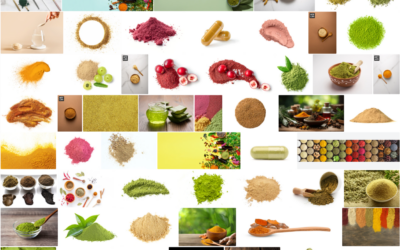




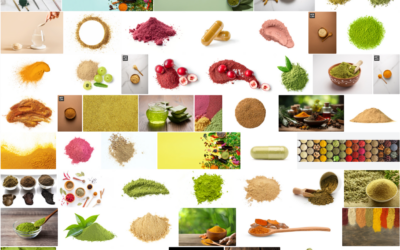



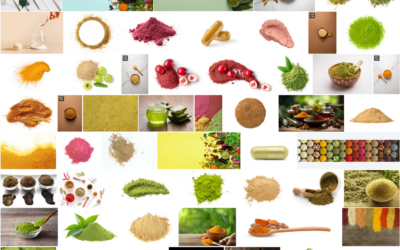

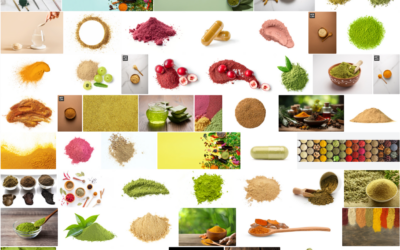

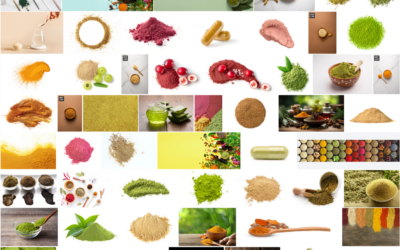




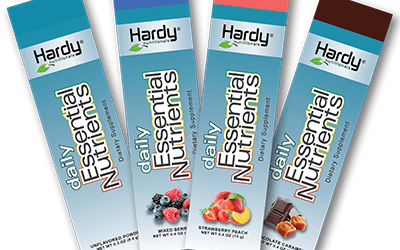

0 Comments